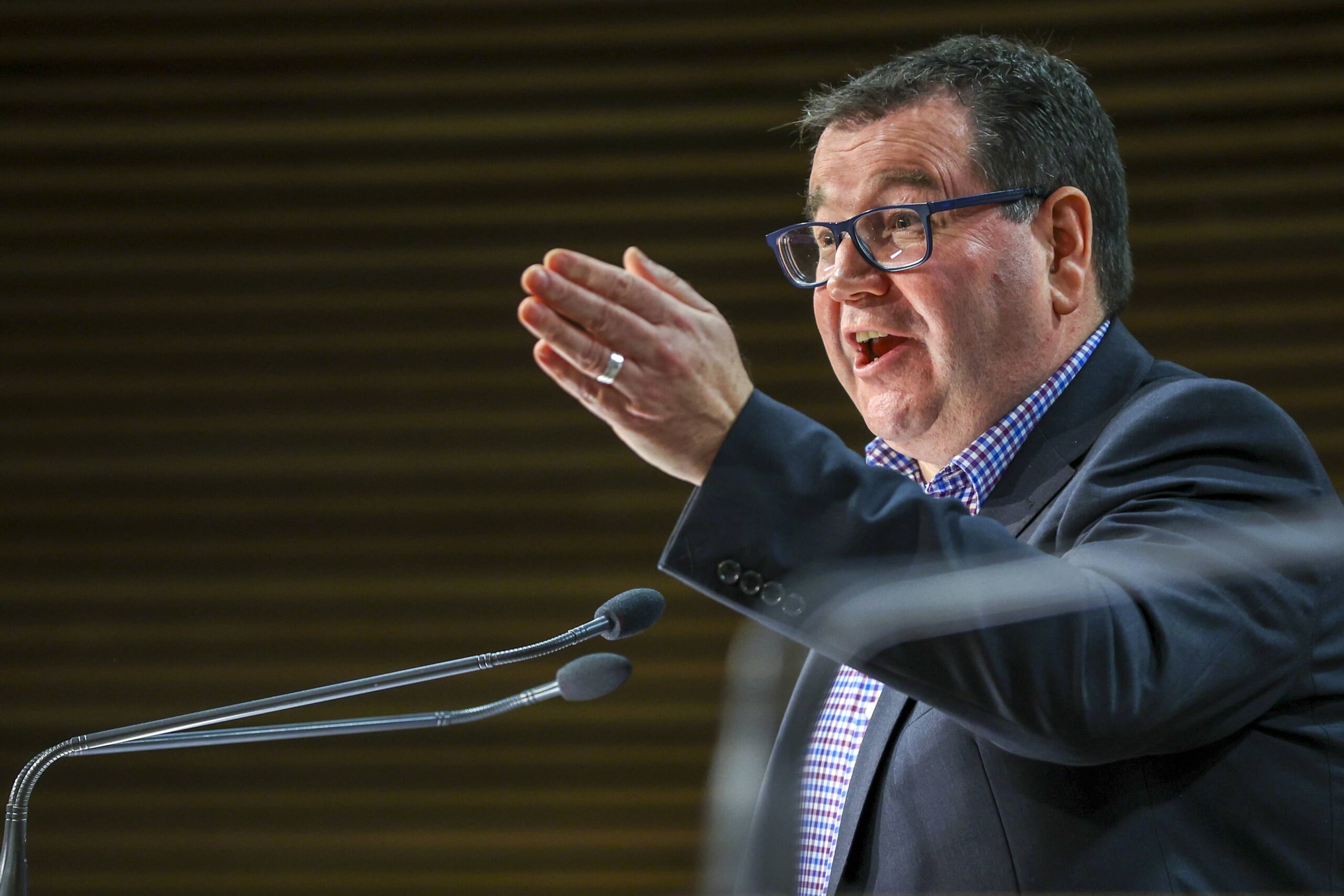New Zealand became the latest country to ban conversion therapy this week in a near-unanimous vote of its parliament.
Legislation outlawing the harmful, discredited practice passed New Zealand’s unicameral legislature on Feb. 15 by an overwhelming 112-8 margin, with all “no” votes coming from the centre-right National Party. The Conversion Practices Prohibition Legislation Bill outlaws any attempt to “cure” the sexual orientation or gender identity of an LGBTQ+ minor, and violators will face up to three years in prison.
The legislation, however, does not solely prohibit “ex-gay” treatments on youth. It also outlaws conversion therapy aimed at individuals who lack “decision-making capacity,” according to Reuters, and any practices that cause “serious harm” could result in a maximum prison sentence of five years.
Tuesday night’s hearing on the bill featured passionate speeches in support of the legislation by New Zealand political leaders. Deputy Prime Minister Grant Robertson recalled that his “churchgoing household” embraced him after he came out as a gay man but noted that wasn’t true for all LGBTQ+ people. He said that a friend, James, took his own life after facing “anger, rejection and derision” from his community.
Robertson dedicated the bill to “James and the many like him from all parts of the rainbow community.”
“We cannot bring you back, we cannot undo all the hurt,” he said in comments reported by the New Zealand Herald, “but we can make sure for the generations to come we provide the support and love you did not get and protect you from the harm of those who seek to try to stop you from being who you are. We will never forget you.”
In a series of tweets after the bill’s passage, Labour Party lawmaker Kiri Allan opened up about her own experiences as a conversion therapy survivor in a series of tweets. As a teenager, Allan said she tried to “pray the gay away” at her church, which taught her that her attraction to other women was caused by “illness” and “weakness.” All she really wanted, Allan added, was to “be accepted by my family, community and church.
“It took a long time to shake that shame and trauma,” Allan wrote. “Tonight our Parliament will ensure this practice is banned in our country for good. For our next generation of babies, I am so incredibly relieved. Thank you to everyone that championed this change.”
Supporters of the bill noted that it would not suppress the free speech of people of faith opposed to LGBTQ+ identities, a common criticism of such legislation. The bill “protects the right to express opinion, belief, religious belief or principle which is not intended to change or suppress a person’s sexual orientation, gender identity or gender expression,” the New Zealand government said.
“This legislation is not looking to criminalise open and respectful conversations which aim to facilitate help and support where someone is wrestling with their sexuality,” federal authorities added in a statement cited by the U.K. television network ITV.
The conversion therapy bill’s passage has been a long time coming for New Zealand.
In 2018, a trio of LGBTQ+ and allied groups, including the youth wings of the Labour and Green parties, delivered a petition to New Zealand’s parliament demanding it take action against the widely condemned practice. Groups like the World Health Organization (WHO) and experts with the United Nations have likened conversion therapy to “torture,” while the suicide prevention group Trevor Project has found that survivors experience elevated rates of suicidal ideation.
After Prime Minister Jacinda Ardern listed the conversion therapy ban as among her key priorities during her 2020 re-election campaign, the government finally introduced its bill in November. More than 107,000 people submitted comments on the legislation during a public consultation period, the largest number for any bill in New Zealand’s history.
Several other nations already prohibit conversion therapy, including Argentina, Ecuador, Germany and Malta, as well as parts of the United States and Australia. Both Canada and France have passed laws barring reparative treatments in recent months, while Israeli Health Minister Nizhan Horowitz confirmed this week that the country would be moving forward with its own ban, which only applies to licensed medical professionals.


 Why you can trust Xtra
Why you can trust Xtra


